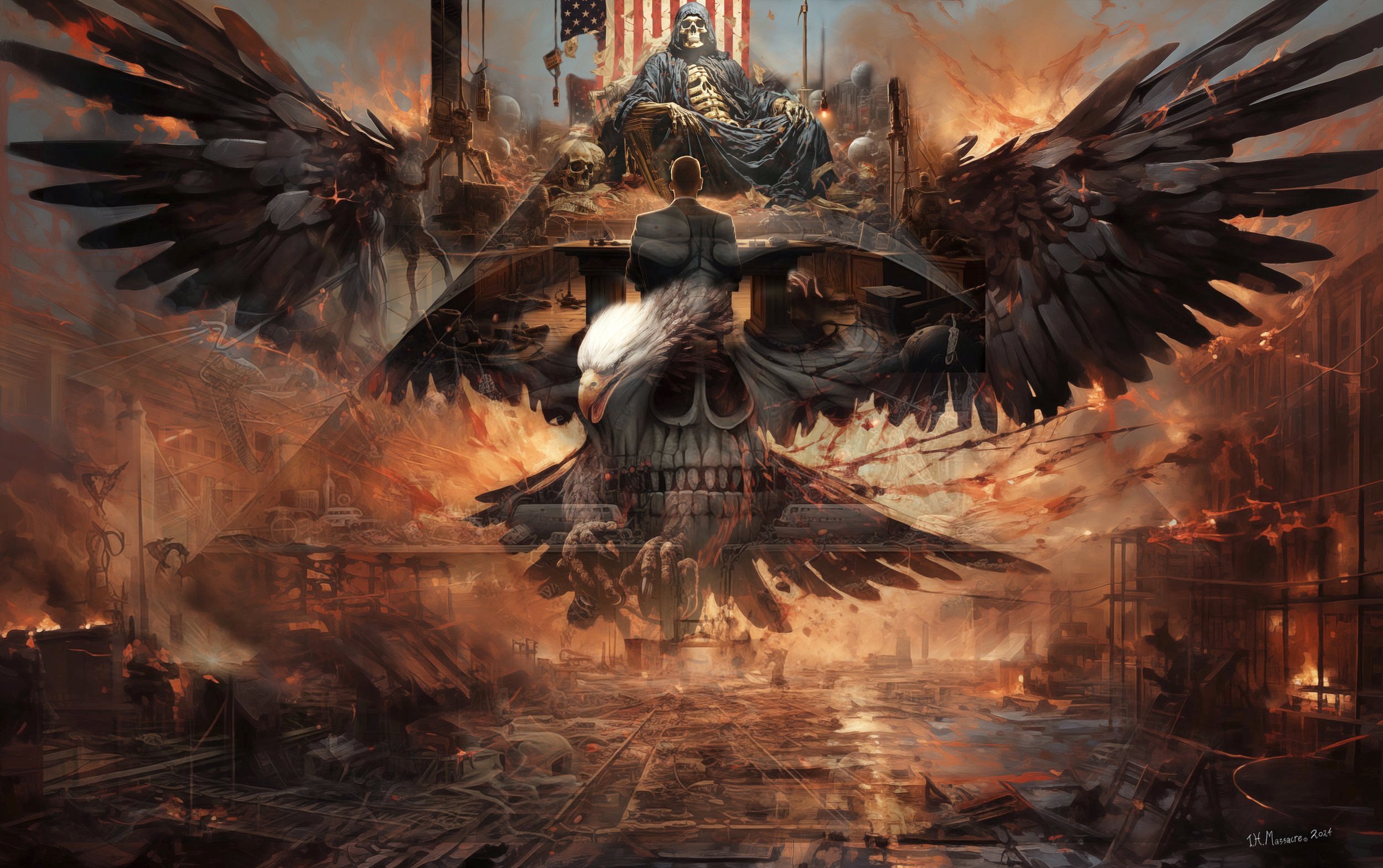Demons & Democracy

The Demon in Democracy by @thma33acre 2024
Demons & Democracy: Unveiling the Dark Heart of Liberty
Democracy, hailed as the pinnacle of human governance, promises liberty, equality, and prosperity. It is a beautiful concept that has propelled societies to unprecedented heights in technology, wealth, and personal freedom. Yet, beneath its gleaming exterior lies a darker truth: democracy's extraordinary successes have often been built upon a foundation of conflict and war. This tragic reality reveals democracy as a demon in disguise, where the pursuit of material and financial value eclipses the sanctity of life on our planet.
A Demon in Disguise
At first glance, democracy embodies the highest ideals of human aspiration. It promotes individual rights, freedom of expression, and the rule of law. These principles have fostered innovation, economic growth, and a higher quality of life for many. However, democracy's seductive promise of liberty conceals a pernicious underbelly. The very mechanisms that sustain democratic societies—capitalism and the relentless pursuit of profit—are also the engines of conflict and destruction.
The War Machine: A Historical Perspective
The connection between democracy and the war machine is not a modern phenomenon. It can be traced back to the ancient democracies of Greece and Rome, where military conquest was a means of expanding power and wealth. Athens, the cradle of democracy, financed its golden age through the spoils of war, using tribute from conquered states to fund its grand projects and maintain its naval supremacy.
Similarly, Rome’s republic thrived on relentless expansion, its economy bolstered by the wealth of subjugated territories and the labor of enslaved peoples. The British Empire, often celebrated for spreading democratic ideals, relied on military dominance and colonial exploitation to build its vast wealth. This pattern continues in the American corporate empire, where economic success is intertwined with a robust military-industrial complex.
The Financial Incentive for War
The lifeblood of modern democracy is money, and capitalism lies at its heart. In theory, capitalism drives innovation and economic prosperity. In practice, however, it also fosters a system where financial gain often takes precedence over ethical considerations. The war machine is a prime example of this flawed system, offering enormous profits to corporations involved in defense and arms manufacturing. The perpetual state of conflict, whether overt or covert, ensures a steady stream of revenue.
Wars create demand for weapons, ammunition, and military technology. Defense contractors and private military companies thrive on this demand, lobbying governments to sustain and escalate conflicts. This self-perpetuating cycle is driven by profit, with little regard for the human cost. Corrupt Politicians, influenced by corporate donations and the promise of economic growth, often turn a blind eye to the destructive consequences of their policies.
The Tragedy of Financial Success
The financial success of democratic nations is frequently lauded, but it often comes at a grave cost. The resources that fund technological advancements and social programs are, in many cases, derived from industries tied to conflict. This creates a paradox where the prosperity of a few is built upon the suffering of many. The ecological devastation and human casualties that result from wars are conveniently obscured by the narrative of national interest and security.
The media, an integral part of democratic societies, plays a significant role in maintaining this illusion. It crafts stories of heroism and national pride, deflecting attention from the grim realities of war. By shaping public perception, the media helps sustain the war machine, ensuring continued support for military interventions and defense spending.
Can Democracy Exist Without Bloodshed?
This brings us to a crucial question: can we have democracy without bloodshed? The answer lies in reimagining the very foundations of our democratic systems. To extricate democracy from the clutches of the war machine, we must prioritize ethical considerations over financial incentives. This means implementing strict regulations on defense spending, curbing the influence of corporate lobbying, and fostering a culture of transparency and accountability in government.
We must redefine Democratic success, not by economic metrics alone but by the well-being and sustainability of our societies. Investing in education, healthcare, and renewable energy can create a more just and peaceful world. By shifting our focus from military might to human development, we can uphold the true spirit of democracy—one that values life over profit.
T.H.Massacre
333






